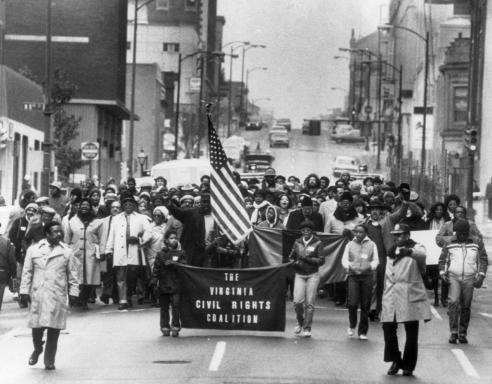The Legacy of the Civil Rights Movement

Richmond History Center)
The civil rights movement was a heroic episode in American history. It aimed to give African Americans the same citizenship rights that whites took for granted. It was a war waged on many fronts. In the 1960s it achieved impressive judicial and legislative victories against discrimination in public accommodations and voting. It had less complete but still considerable success in combating job and housing discrimination. Those best able to take advantage of new opportunities were middle-class blacks—the teachers, lawyers, doctors, and other professionals who had served as role models for the black community. Their departure for formerly all-white areas left all-black neighborhoods segregated not only by race but now also by class. The problem of poverty, compounded by drugs, crime, and broken families, was not solved by the civil rights movement.
The process of school integration begun by the Brown decision of 1954 is viewed by some as a failure because many schools remain segregated by race as blacks and whites still, mostly, live in distinct neighborhoods. But no longer does the law assign blacks to separate schools. Although Brown dealt only with discrimination in education, it effectively sounded the death knell for the whole Jim Crow system of second-class citizenship. That is its greatest significance. However, it took the efforts—and in some cases the lives—of many men and women, black and white, to finally conquer Jim Crow.
Inequality remains. The average income of black families is still well below that of whites. Even college-educated blacks earn less than their white counterparts. The civil rights movement did not achieve complete equality, but greater equality. It brought the reality of Virginia closer to the promise articulated by Virginian Thomas Jefferson when he wrote "that all men are created equal."
